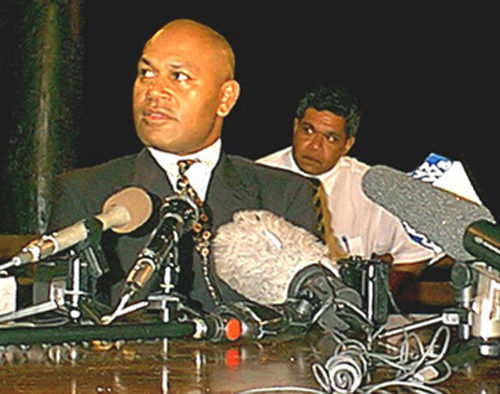
On 19 May 2000, an insurrection led by failed businessman George Speight and seven renegade members of the élite 1st Meridian Squadron special forces engulfed the Fiji Islands in turmoil for the next three months. Speight and his armed co-conspirators stormed Parliament and seized the Labour-led Mahendra Chaudhry Government hostage for 56 days.
On Chaudhry's release from captivity, he partly blamed the media for the overthrow of his government. Some sectors of the media were accused of waging a bitter campaign against the Fiji Labour Party-led administration and its rollback of privatisation. In the early weeks of the insurrection, the media enjoyed an unusually close relationship with Speight and the hostage-takers, raising ethical questions.
Dilemmas faced by Fiji and foreign journalists were more complex than during the 1987 military coups. As Fiji faces a fresh general election in August 2001, this article examines the reportage of the Coalition Government's year in office, media issues over coverage of the putsch, and a controversy over the author's analysis presented at a Journalism Education Association (JEA) conference in Australia.
Robie, David (2001). Coup Coup Land: The press and the putsch in Fiji. AsiaPacific MediaEducator, 10: 149-161. University of Wollongong, NSW, Australia. Full text available @ http://ro.uow.edu.au/apme/vol1/iss10/16


